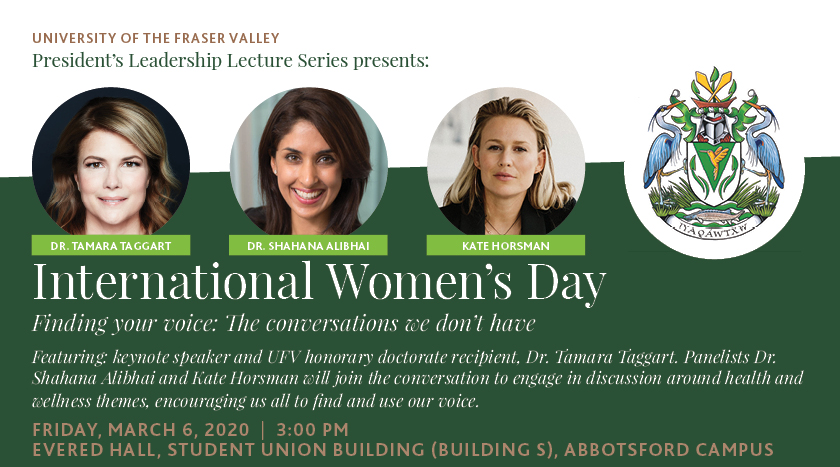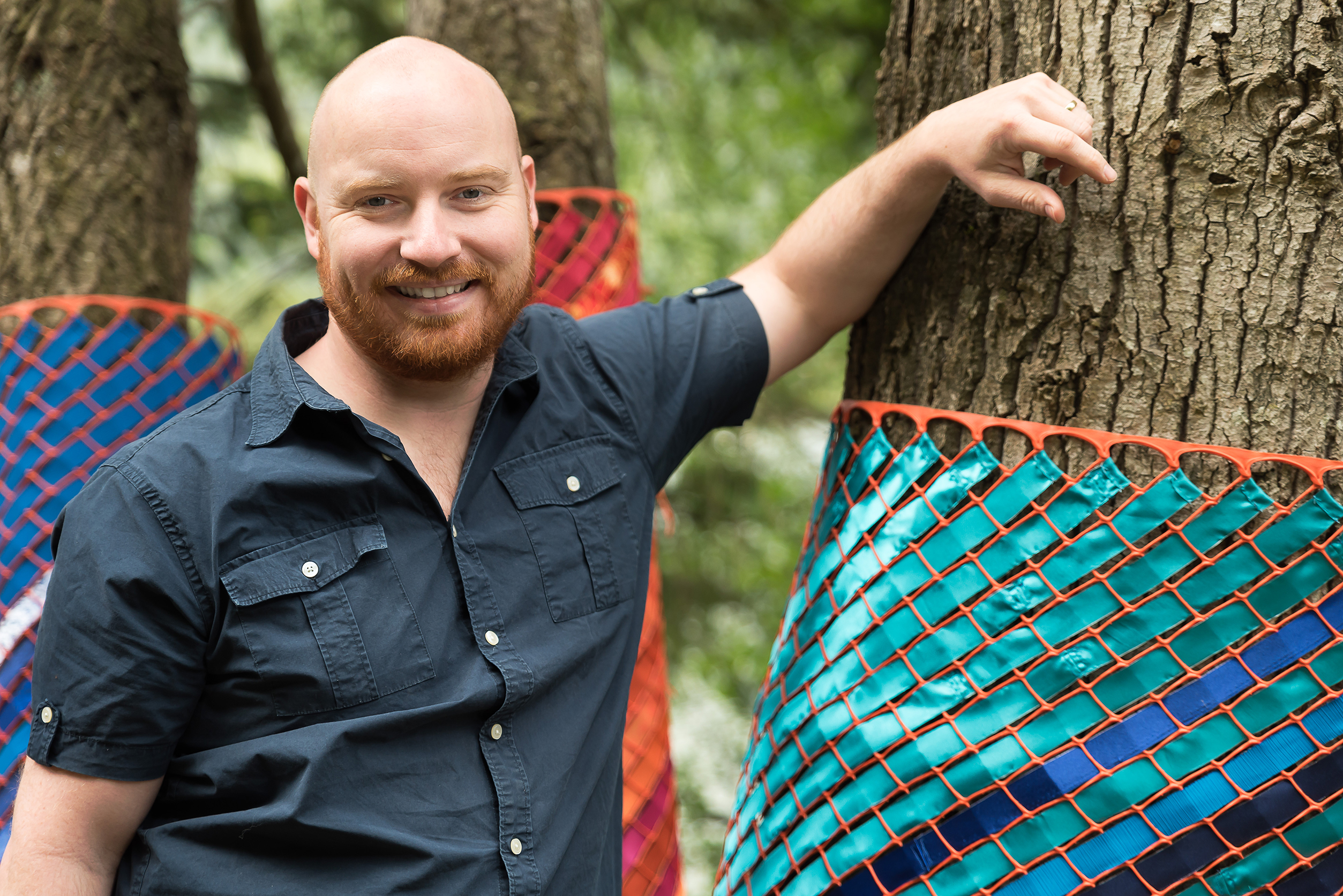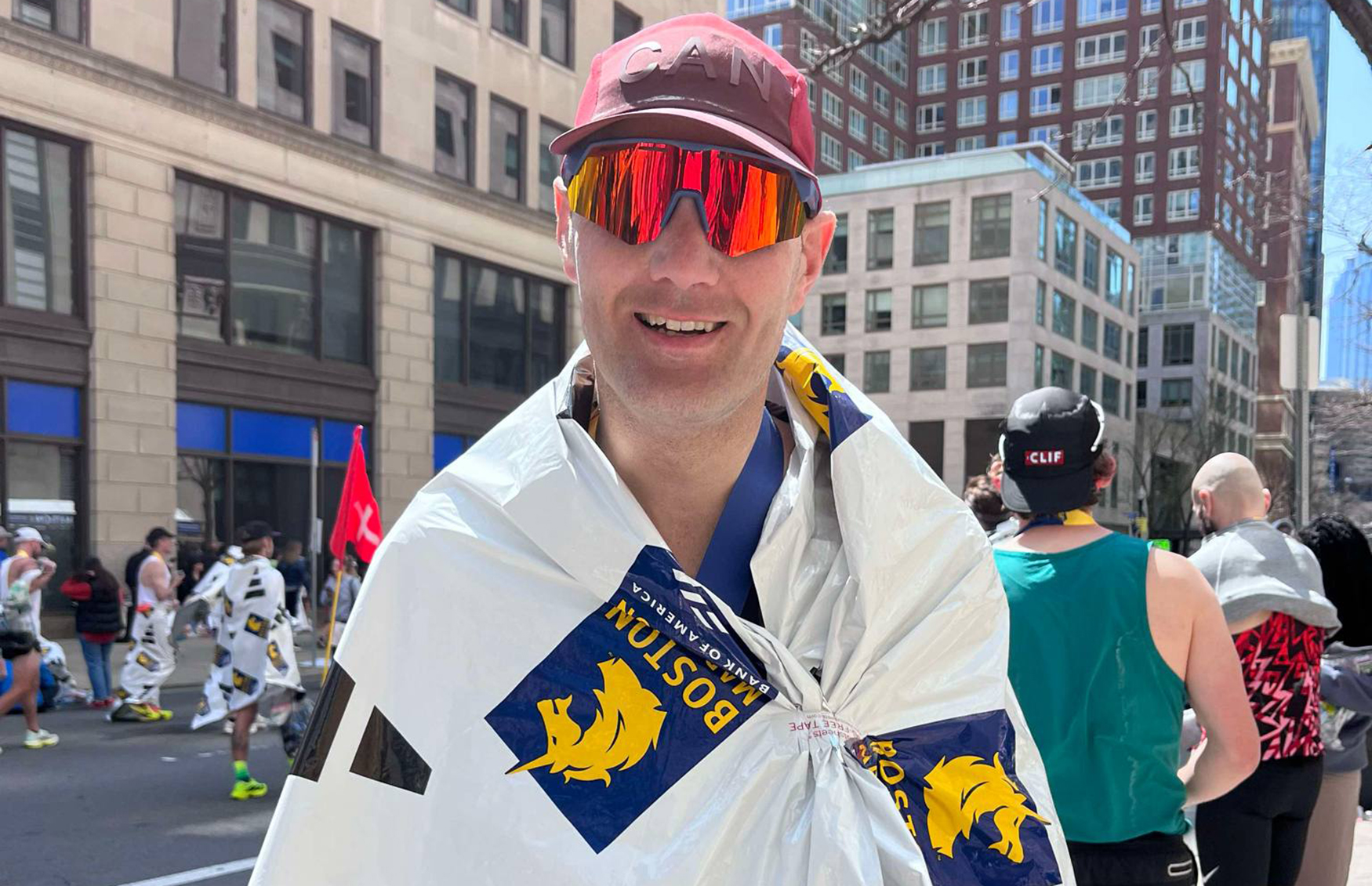Tamara Taggart to lead panel discussion on health and wellness for International Women’s Day at UFV
 Community leader Tamara Taggart, who received an honorary doctorate from UFV in 2017, will return to the Abbotsford campus on March 6 to lead a panel in honour of International Women’s Day.
Community leader Tamara Taggart, who received an honorary doctorate from UFV in 2017, will return to the Abbotsford campus on March 6 to lead a panel in honour of International Women’s Day.
The event, part of the President’s Leadership Lecture Series presented by UFV President Joanne MacLean, will take place at 3 pm in Evered Hall in the Student Union Building on the Abbotsford campus. Admission is free and the public is welcome.
With a theme of Finding our Voice: The Conversations We Don’t Have, the discussion will focus on health and wellness issues.
Taggart will be joined by family physician Shahana Alibhai, an advocate for optimal health, and nutritionist Kate Horsman, who is dedicated to helping people discover the power of food and its key to wellness in a happy, meaningful and healthy life.
An activist, veteran broadcaster, cancer survivor, and mother, Taggart advocates for others and raises much-needed funds for many important causes. Throughout her career as a broadcaster on local television, radio and digital media, she earned her place as a trusted voice for people in Vancouver. She has focused two decades of volunteer efforts on health care and the well-being of children and people with disabilities.
Taggart’s 2014 TED Talk, “Two Conversations that Changed My Life”, struck a chord with medical professionals and universities around the world, by reframing the way healthcare practitioners communicate hope.
In 2015 she was awarded the Order of BC in recognition of her years of public service. She also received an honorary degree from UFV in 2017.
Shahan Alibhai is a family doctor and a mother of two.
“I know the pressures many women face — trying to be there for our kids, trying to push forward in our careers and at the same time doing it all with a smile,” she notes.
“I thought I knew the importance of eating well and moving more but after completing my residency in family medicine, the stressors of life caught up to me. After the birth of my first son, I found myself deep into what I would later find out was postpartum anxiety. The lesser-known counterpart to postpartum depression, postpartum anxiety can present with panic attacks, OCD type symptoms, and feelings of being constantly keyed up and on edge. With over 10 years of studying nutrition, exercise, and medicine I thought I knew what it took to keep me well…but I fell short.”
The missing link for Alibhai was healthy thinking.
“I was used to sprinting through life and at this pace, eventually, you hit the wall. I’ve come up with the pyramid of optimal health because it’s something I’ve used personally and with my patients.”
Kate Horsman is a nutritionist and professional counsellor. She is passionate about helping people discover the power of food and its key to wellness in a happy, meaningful and healthy life, using food as a conduit to larger conversations.
She melds the bridge between the mind/body connection, which lends to her specialization in eating disorders, mental illness, women’s health and plant-based living.
Taggart will guide the conversation and provide a keynote introduction.
She will share her personal story, outlining how she put herself through journalism school, found her own voice, and eventually became an advocate for her own health and the health of her son.
Taggart will reflect on how surviving and thriving are on a continuum, not mutually exclusive.
“What challenges teach us,” she notes. “I will touch on how we learn and grow from the hard times.”
Alibhai will discuss the stigma around post-partum anxiety and depression, and how the pyramid model of optimal health can help you optimize the mind and relationships, make better decisions about health, and positively impact those around you.
Horsman will discuss how challenging conversations allow us to heal, to connect, and to create space, and how we need to learn how to trust ourselves/bodies again.
“The body keeps the score,” she notes. “We often mask our relationships with our bodies with the idea that it is not good enough; however, it rather might be the uncomfortable feelings or beliefs we have, that present in the body.”
She will also touch on post-traumatic growth; the idea that our challenges can actually fuel our greatness, rather than our weakness.
To register for the event, contact presidentsoffice@ufv.ca.




